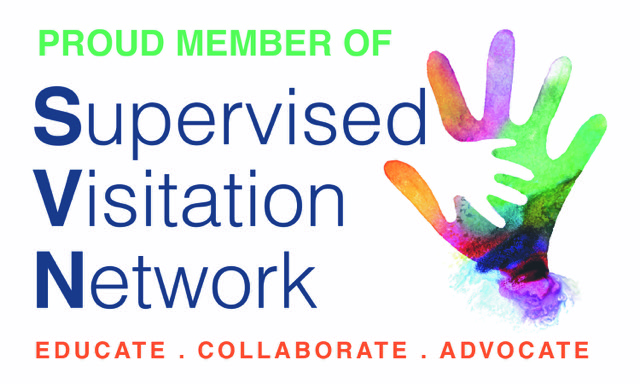
Supervised exchanges, often referred to as monitored exchanges or supervised/monitored transfers, is supervision of the transfer of the child(ren) from one parent to the other.

Supervised Visitation, sometimes referred to as Monitored Visitation, Supervised Child Access, or Supervised Child Contact, refers to contact between a non-custodial parent and one or more children in the presence of a third person responsible for observing and seeking to ensure the safety of those involved.

In some cases supervised visitation is mandated when there is genuine concern about a child’s emotional or physical safety when with a parent.
Parents who have valid concerns for the safety of their children should seek help from an attorney, mediator, court services, child psychologist, domestic abuse office, or the local county social services agency.
Unless special circumstances exist, children generally fare best when they have the emotional and financial support and ongoing involvement of both parents. The lack of involvement of one or both parents may lead to developmental problems later on in the child’s life. Children adjust much better to crisis and loss if their parents work together to develop healthy ways of communicating, reducing conflict, and resolving problems. Parents can help their children adjust to separation from a parent by establishing a visitation schedule that focuses on the needs of their children. Children’s needs change as they grow older and move from one developmental phase to the next. For this reason, each visitation schedule must be flexible, changing in duration and frequency as the child gets older and moves from one stage of development to the next. It is important for parents to remember that formation of a positive parent-child relationship is a life-long process, and that the key to a successful relationship is the quality of time, rather than quantity of time, spent together.
At Managing Life Changes we ensure a more holistic approach to Supervised Parenting Time. Our mission is to maintain consistent professionalism and training. Our Focus is in making small but meaningful improvements for vulnerable parents. We are NOT decision makers.


Parents can keep their children out of the middle of adult issues by not using the children as messengers. Sometimes the message is something as innocent as a reminder that the child must take her medication before bedtime. Other times, the message may be that the child support payment will be late. Unfortunately, we all know what happens to the bearer of bad news. If the message was difficult for one parent to say directly to the other parent, just imagine how difficult it will be for the child to relay that message. Instead of using their children as messengers, parents should either deal directly with each other or through a mutually agreed upon adult.
Parents can keep their children out of the middle of adult issues by not asking them to report about what is going on in the life of the other parent. Any time children are asked to divide their loyalty, or to betray one parent to another, the children feel guilty or as if they are being asked to stop loving one parent. It is certainly appropriate for parents to show interest in the lives of their children by asking “how was your weekend visit?” But, if the interest is not in the child or in how the child feels, the child will pick up on this and may eventually feel angry and used.
Parents can keep their children out of the middle of adult issues by not attacking or putting down the other parent.Some parents find themselves so angry with the other parent that they vent their anger in front of their children. Other parents may say things to try to make themselves look good and the other parent look bad. Children identify with both parents. If one parent puts down the other parent, in the eyes of the child it is as if that parent is also putting down the child.
What can I expect from my Supervised Visitation Provider/Monitor?
A Supervised Visitation Network Member:







Managing Life Changes and Kimberly took some of the stress out of custodial visits. I felt my children were safe and well-looked after even though I couldn't be there.

Kimberly with Managing Life Changes made it possible for me to spend time with my children that I might not have been able to get otherwise. She was alert yet unobtrusive and I appreciate any amount of time I can spend with my kids.

Going through a divorce you tend to get caught up in all the emotional stuff and sometimes the young ones suffer because of it. Managing Life Changes gave us the peace of mind knowing that no matter which of us was there, the children were going to be put first.
West Coast of Florida, USA | Phone: 813-530-6324| Email: managinglifechanges@gmail.com
© 2024 Managing Life Changes, Website Design by Create2Sell